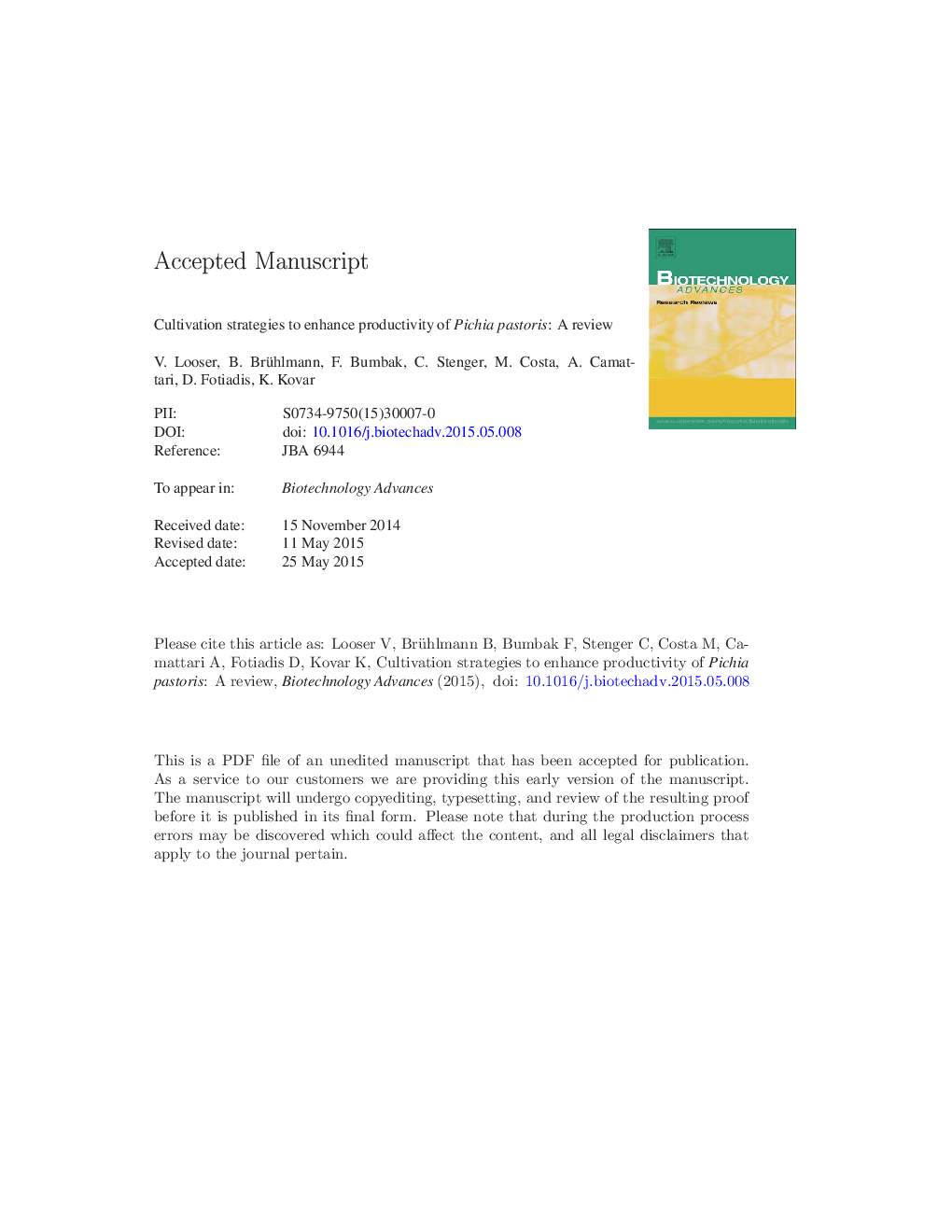| Article ID | Journal | Published Year | Pages | File Type |
|---|---|---|---|---|
| 10231444 | Biotechnology Advances | 2015 | 44 Pages |
Abstract
Pichia pastoris, a methylotrophic yeast, is an established system for the production of heterologous proteins, particularly biopharmaceuticals and industrial enzymes. To maximise and optimise the production of recombinant products, recent molecular research has focused on numerous issues including the design of expression vectors, optimisation of gene copy number, co-expression of secretory proteins such as chaperones, engineering of glycosylation and secretory pathways, etc. However, the physiological effects of different cultivation strategies are often difficult to separate from the molecular effects of the gene construct (e.g., cellular stress through over-expression or incorrect post-translational processing). Hence, overall system optimisation is difficult, even though it is urgently required in order to describe and understand the behaviour of new molecular constructs. This review focuses on particular aspects of recombinant protein production related to variations in biomass growth and their implications for strain design and screening, as well as on the concept of rational comparisons between cultivation systems for the development of specific production processes in bioreactors. The relationship between specific formation rates of secreted recombinant proteins, qp, and specific growth rates, μ, has been analysed in a conceptual attempt to compare different systems, particularly those based on AOX1/methanol and GAP/glucose, and this has now evolved into a pivotal concept for bioprocess engineering of P. pastoris.
Related Topics
Physical Sciences and Engineering
Chemical Engineering
Bioengineering
Authors
V. Looser, B. Bruhlmann, F. Bumbak, C. Stenger, M. Costa, A. Camattari, D. Fotiadis, K. Kovar,
